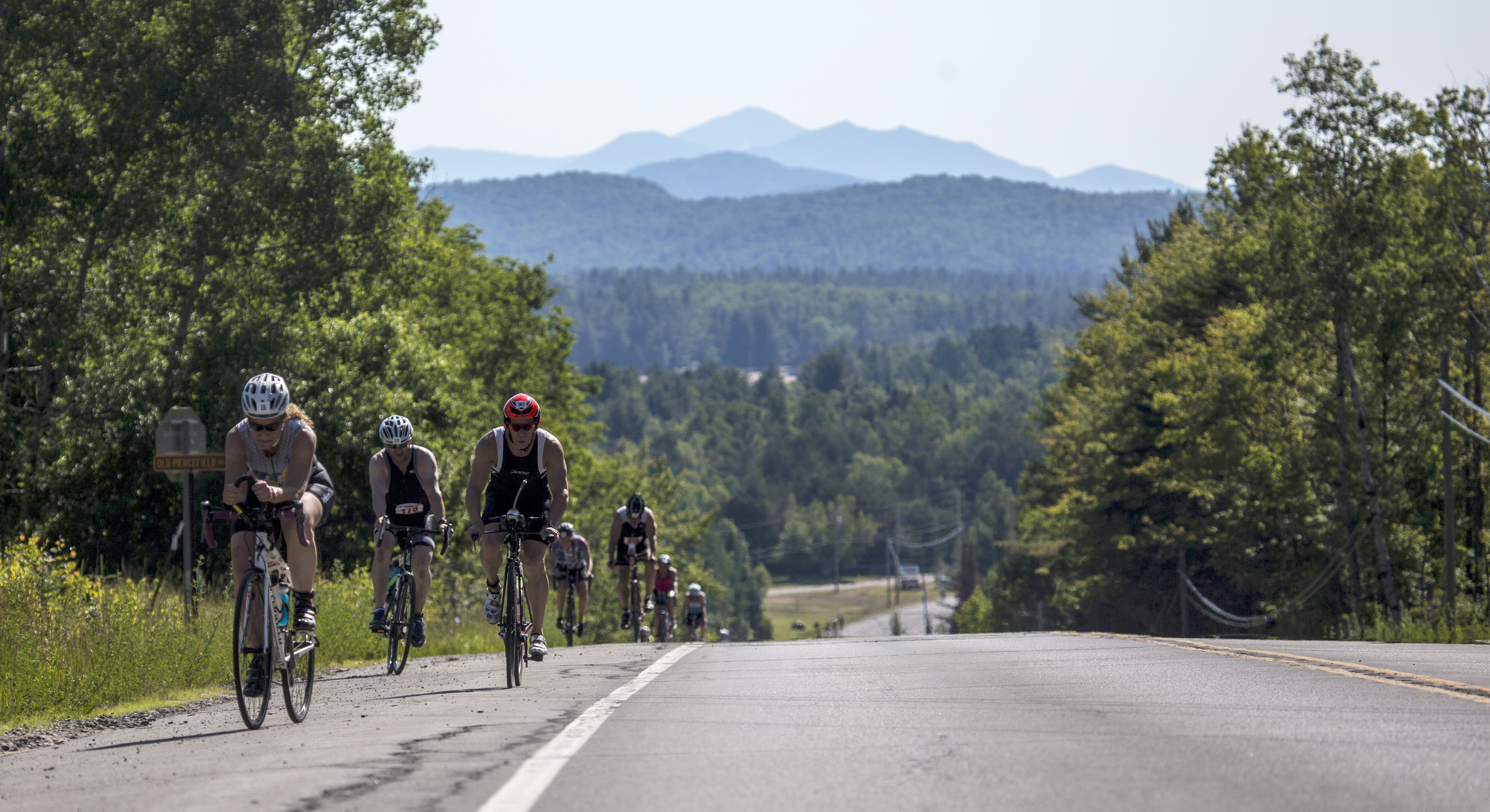
Three ways to Tinman
The Tupper Lake Tinman Triathlon began in 1983, with 68 people competing in the 1.2-mile swim, 56-mile bike, and 13.1-mile run. It’s one of the oldest triathlons in the United States. People from all over get into the race; some by volunteering, some by competing. I wanted to take a closer look, so I reached out to people with three different Tinman experiences: Tri Huracan Coach Ismael Rodriguez, Race Director Wendy Peroza, and father-daughter duo William and Elizabeth Izzo.
Team spirit: Tri Huracan
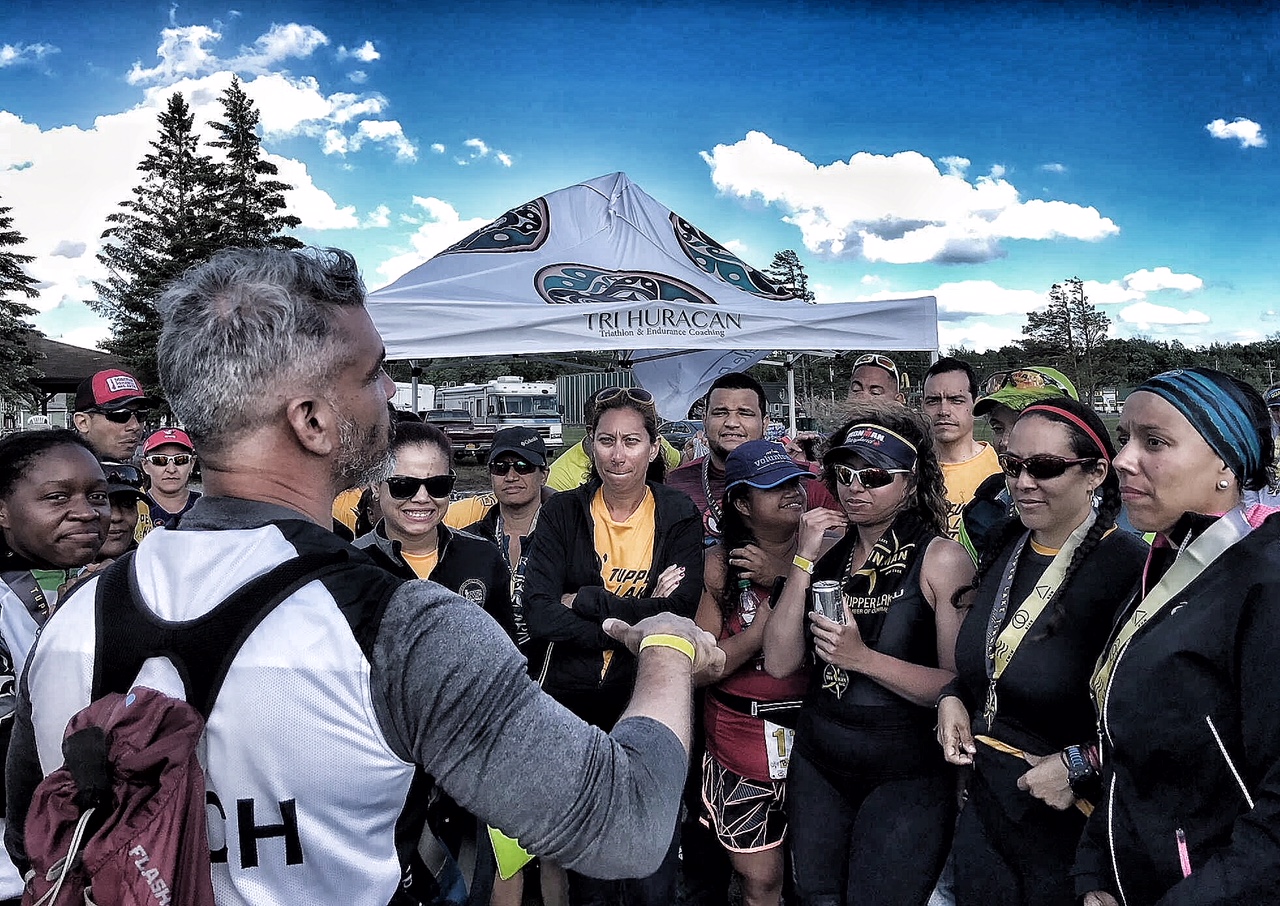
The story behind team Tri Huracan is incredible. The Bronx-based triathlete training team began after founder and coach Ismael Rodriguez got the triathlon bug.
Ismael said the original intent of Tri Huracan was to coach athletes looking to improve. As interest grew, it turned into something he calls a triathlete factory. In 2019, the team brought 32 athletes to the Tupper Lake event; 24 of them were first-time triathletes.
“In the case of almost all of them, they learned to swim a few months leading up to the event,” Ismael said. “I never really set out to teach adults how to swim, it just kind of happened that way. It turned into a triathlete factory.”
That’s a page out of Ismael’s own story. When he turned 40, he decided to cross “learn to swim” off of his bucket list, then he did the New York City Triathlon in 2008 and his first Ironman — that’s a 2.4-mile swim, a 112-mile bicycle ride, and a 26.2-mile marathon run — in 2011.
“If you don’t learn this stuff as a kid, what circumstances are there for you to learn this?” Ismael said. “I think that’s how this triathlon team grew organically; it attracted these like-minded people who said, ‘Hey, I don’t know how to swim either. Will you teach me?’”
Ismael stresses the notion that if he can do it, anyone can. As a coach, he’s there to guide the budding athletes. He explained that something like swimming is a life skill and dedication, willpower, and drive are things he can’t provide. Those who bring that will find themselves transformed as fear is whittled away by accomplishment.
“It translates into other areas of your life and you become a better dad, a better mom, or inspired to look for that new career,” Ismael said. “There’s that intrinsic sense of accomplishment that fuels you to move forward in everything you do.”
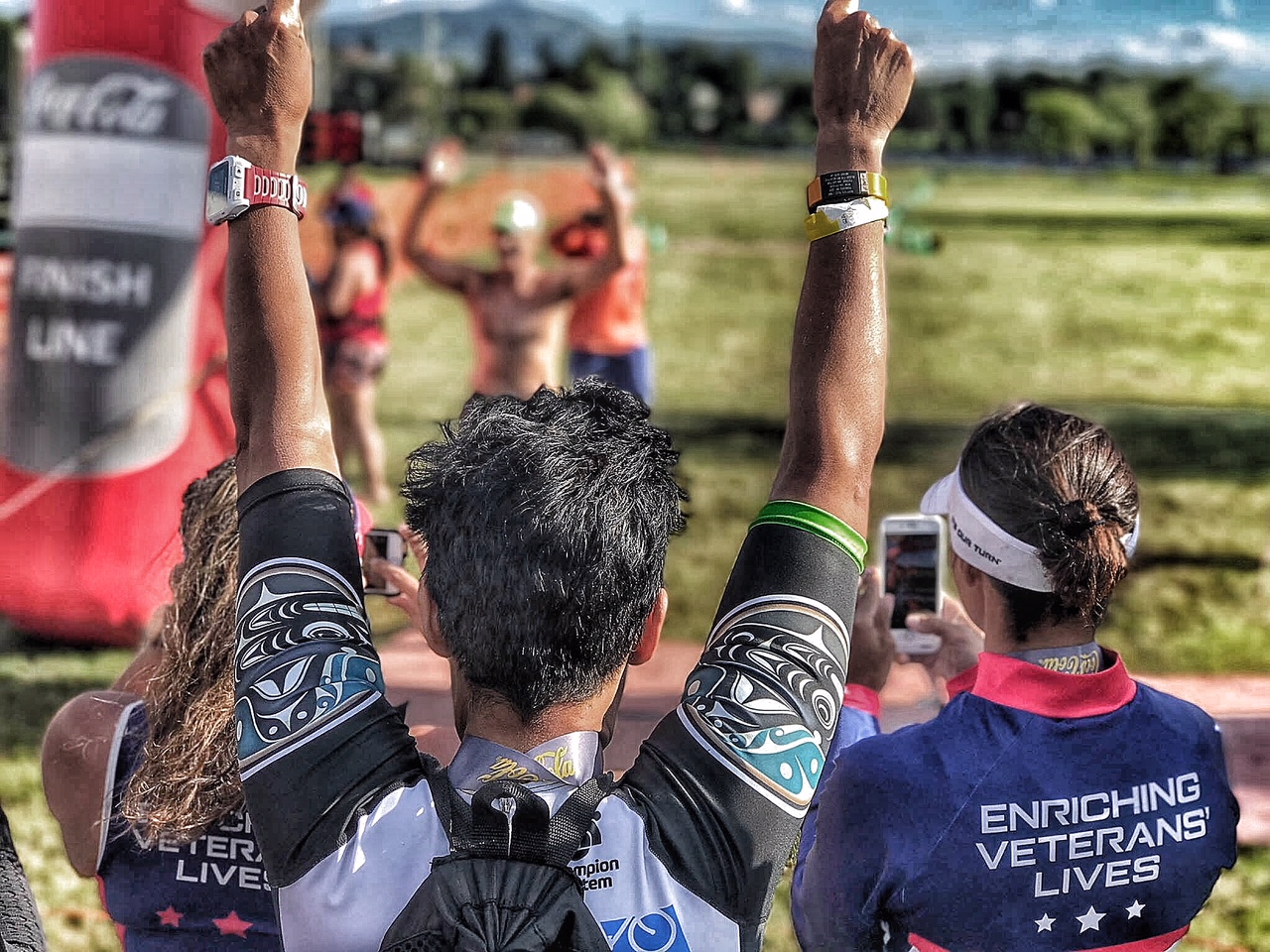
And now, after 97 triathlons and marathons, including seven Ironman races, Ismael is ready for more. He’ll return to Tupper Lake to do the Tinman with more of his fellow Tri Huracan athletes.
“It’s our peers, our tribe,” Ismael said. “We call it a tribe because these are like-minded people who, as adults, have learned to do something that was a transformative experience. It’s amazing.”
Guidance and support: Wendy Peroza
Tinman Race Director Wendy Peroza first volunteered for the event while she was still engaged to her husband, whose family is involved in the race. She had a kayak, so she elected to sit on the water to help monitor the swim portion of the race. Anyone who needed a rest or lost their bearings could count on her for help.
“For a lot of people, it’s their first experience swimming in Adirondack water,” Wendy said. “It’s not quite the same as the pool they’re used to swimming in.”
That’s just the nature of the mountains, though. Wind can kick waves up; a sunny day can turn to rain and vice versa. Tinman athletes remain unfazed, though. Even if they need help finishing, they make it happen.
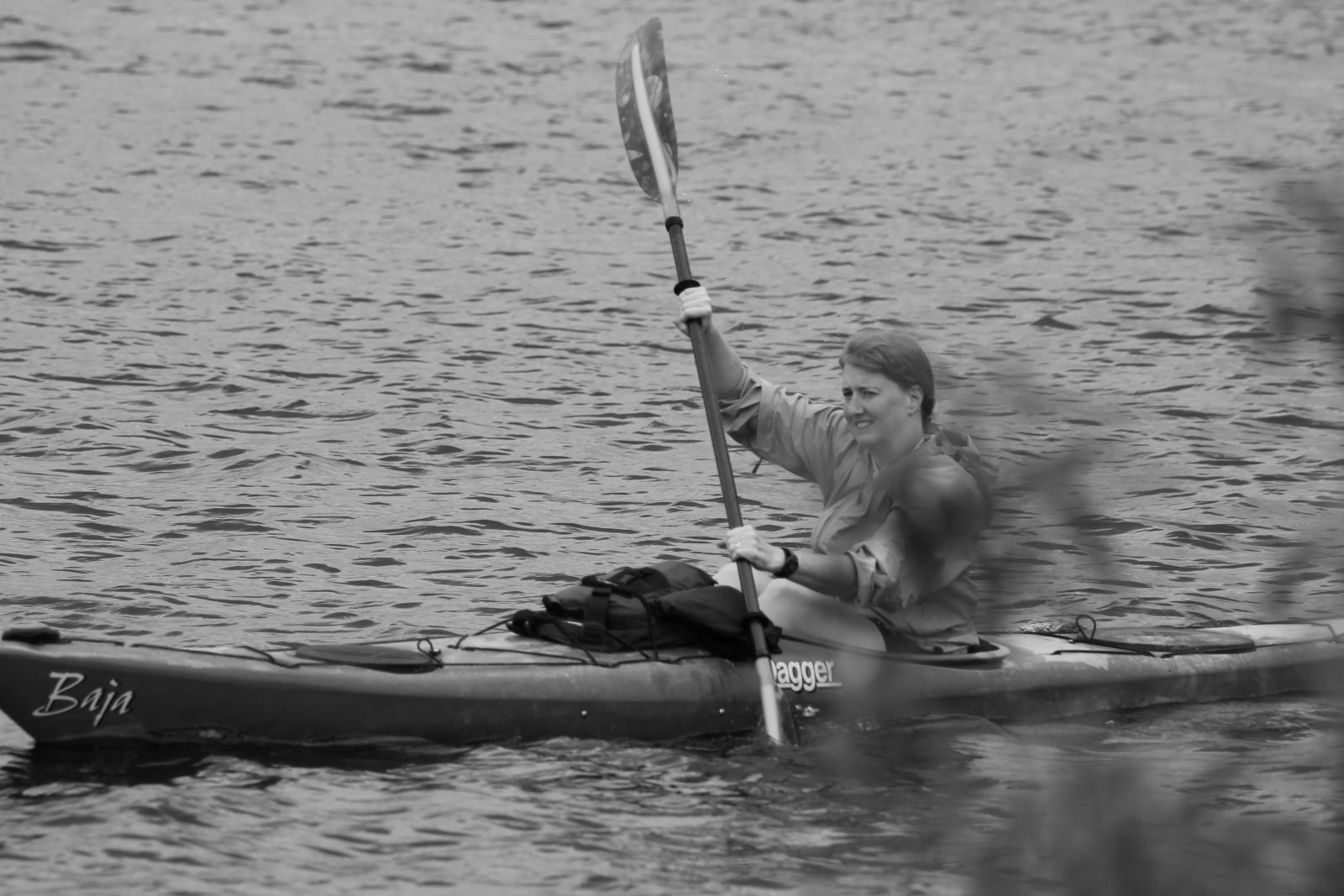
Wendy said that’s part of the beauty of the event. There’s a spirit of cooperation, even among competitors, and everyone wants to see everyone else succeed. Sometimes that’s as simple as helping with a bike repair — Wendy recalled seeing a woman who was still in her wetsuit pop out of the stands to help a fellow athlete fix the locked brakes on her bike.
There are a lot of races out there for triathletes to compete in, but Wendy says a lot of people make their way back to the Tinman. Attendance has fluctuated throughout over the years, with the 25th anniversary having the highest numbers, more than 1,000 registered athletes.
“It’s so fun” Wendy said. “It breathes a new life into the area, seeing all these people oohing and aahing over how beautiful this area is. It’s just fun, being able to expose our town and all the good it has to offer to all of these people from all over.”
Father and daughter: Elizabeth and William Izzo
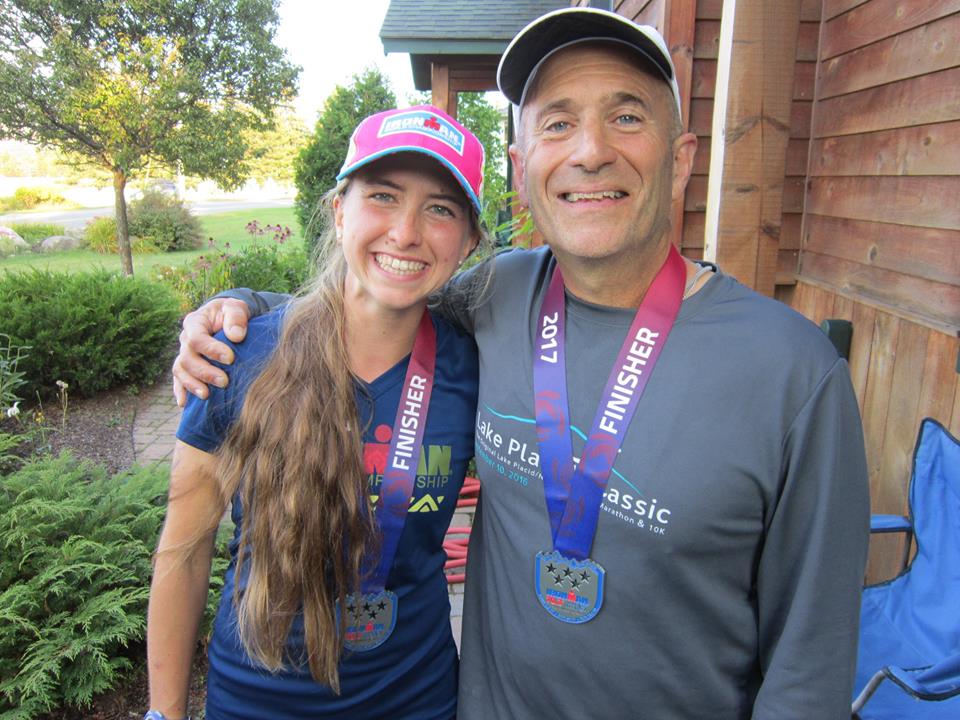
Triathlons run in the Izzo family, pun intended.
William was introduced to the sport in 1989, when he did a mini-triathlon in Lake Placid with his wife.
“The road bike I used looked like something you’d ride around the block,” William said with a laugh. “It was heavy, it had a rack on it and everything. I thought I was going to die, but I absolutely loved the sport.”
Since that admittedly shaky start, William’s love has endured through 18 Tinmans and four Ironmans. He passed that love on to his family, so much that Elizabeth said she didn't need to be convinced to start running mini-triathlons in Lake Placid.
“We grew up going to races together as a family,” Elizabeth said. “If the kids weren't competing, they were there cheering.”
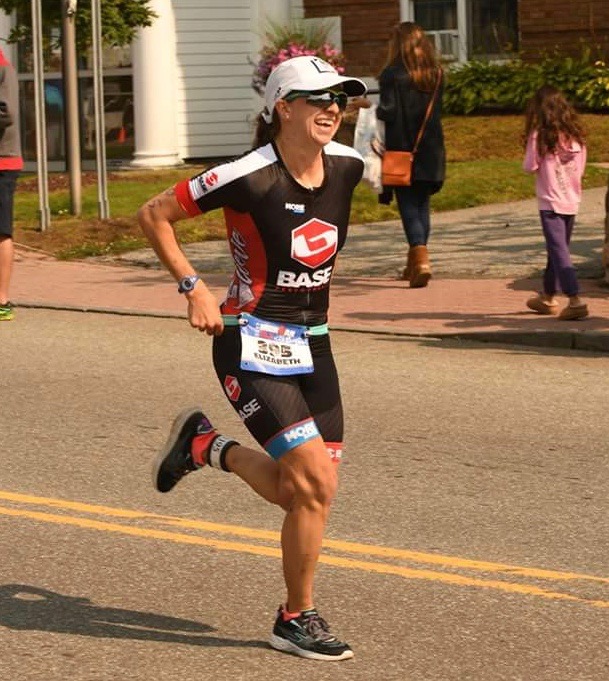
Much like her father’s first foray, Elizabeth’s first outing was a mini-tri in which she rode something that looked more like a mountain bike than a triathlon bike. She’s doing her second Tinman this summer.
William said the Tinman should be on everyone’s list, and those who do it usually come back. There’s a community spirit to it that seems to reverberate with everyone who does the race. For Wendy, it’s watching athletes set the competition aside to help fellow racers. For team Tri Huracan, it’s the bond that stitches the group together, a true family vibe that’s unbreakable. For Elizabeth, it’s the people who show up in droves to support the athletes.
“They’re helping me to reach my goal, and it’s so uplifting,” Elizabeth said. “No matter how I’m feeling I’m excited to see them, and it gives me drive to keep going. I want to do well for myself, but also for the people encouraging me to do well.”
